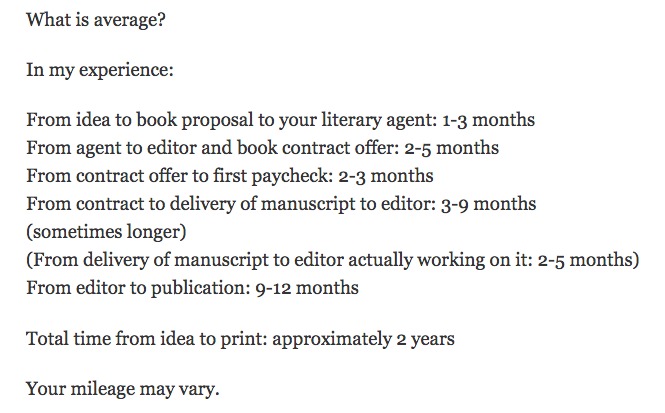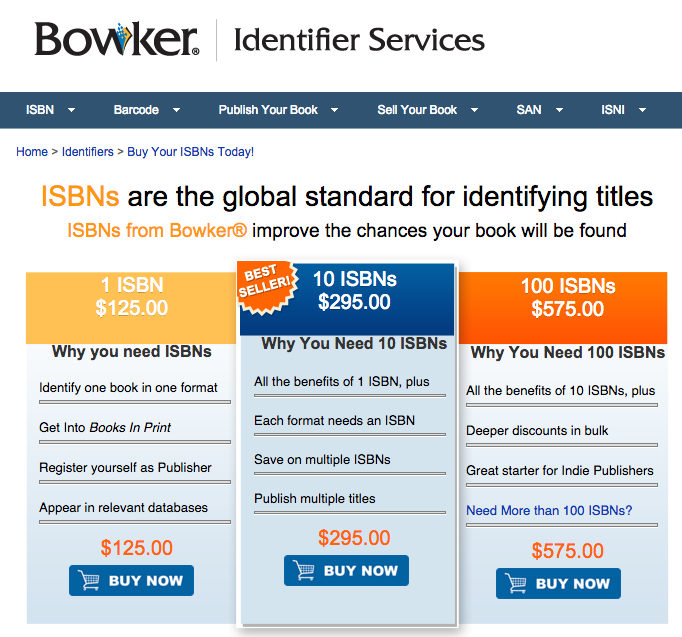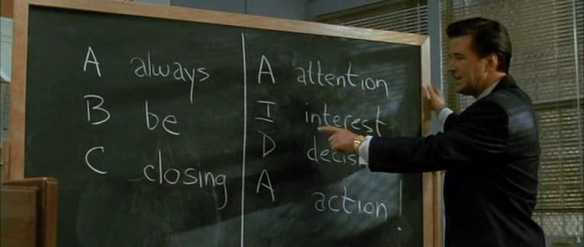Traditional or Self-Publish: What’s Best for You?

You’ve probably already made up your mind. Traditional publishing is the way to go. It is the gold standard, after all. Nothing provides instant validation quite like a contract from a big New York publishing house. To say that you’ve been published sounds great at dinner parties, and is a surefire way to impress your mom’s friends.
But are you selling yourself short by not considering self-publishing? Not only is it a worthy competitor of traditional publishing, self-publishing may win you over because it gives you all the power. There’s no one to stop you from publishing your manuscript and your success is in direct proportion to your hustle.
In this post, we’ll highlight the pros and cons for both traditional publishing and self-publishing. Let’s get started.
Here’s a quick checklist to help you decide whether to go with traditional publishing or self-publishing. Subscribe to receive this extra checklist.
Traditional Publishing
Traditional publishing can be summarized in three words: You get paid.
Here’s how it works: You court a traditional publishing house, usually through a literary agent. The publisher believes that your book will sell tons of copies and enters into an agreement with you. In exchange for a monetary advance and future royalties, you give the publishing company the right to produce, distribute, and sell your book.
Now, let’s talk about the pros and cons.
Pros for Traditional Publishing
1. It’s more prestigious
Getting published by a traditional publishing house has a nice ring to it, especially if it’s one of the ‘Big Five’ (Hachette, HarperCollins, Macmillan, Penguin Random House, and Simon & Schuster). For some authors, it’s the ultimate proof or endorsement of one’s writing ability.
2. You get paid in advance
Goodbye starving artists’ days -- well, at least until the advance check runs out. One of the biggest pros for going with traditional publishing is you’ll get paid in advance before they publish your work. Another bonus is you won’t have to repay the advance if your book doesn’t sell as well as predicted.
3. You get more marketing support
Once you hand your book over to a traditional publisher, you won’t have to market your book as much. They’ll do some of the heavy lifting, but it is still recommended that you pound the pavement and advertise your book as well.
Your publisher will make sure that your book gets placed onto the publisher’s catalog and, from there, possibly to book stores. They will send the book off to reviewers, showcase it at book conventions, and share it on their website.
Some authors are heavily marketed through advertisements. You may even get a book tour if you’re lucky enough.
4. You’re more likely to reach bookstores near you
Booksellers and libraries are much more likely to purchase books from established, traditional publishers. You may be able to sell a self-published book to a local or independent bookseller, but if you’d like to make it to Barnes and Nobles or Books-A-Million, you’ll have better luck going with a traditional publisher. This is especially true for children’s books.
5. It’s all out of your hands
You’re a writer, not a designer. When you go with a traditional publisher, they have in-house resources that can help you produce a polished and professional-looking book. You won’t have to worry about designing, formatting, or choosing a cover image for your book.
Cons for Traditional Publishing
1. It’s all out of your hands
This is both a pro and a con. You may not like the idea of giving away the “baby” that you’ve nurtured for so long (in some cases years) to a publisher that may change everything about it. The publisher may go in a totally different direction than you expect or want. You may have some input, but the final say is out of your hands. That means you won’t control the look, the price or, to a large extent, the marketing of your book.
2. You need to woo a literary agent
Getting accepted by an agent is probably the most difficult part of the publishing process. That’s why you need an agent. An agent will go to the publishing houses and advocate for you. In fact, the top agents will do more than just get you in front of publishers: they’ll manage your writing career and make sure that you’re treated fairly.
But, getting one isn’t easy. As you can imagine, they’re bombarded with tons of query letters by hopefuls just like you. Additionally, they don’t come without strings. They’ll take a 15% commission from your advance and your royalties.
3. It can take a long time
Traditional publishing usually takes at least a year, but sometimes longer. You may go through several rounds of revisions for months on end. According to agent Steve Laube, the process can take as long as two years from conception to publishing.

4. Your book subject may not be in demand
If you’re not writing in a popular genre, say science fiction or romance, you may not be as attractive to traditional publishers. That said, you may find niche publishers that are willing to accept your book, but the market, like your advance, may be smaller.
5. You get a smaller royalty
While everyone goes crazy over the advance, you may not think about the actual percentage of royalties you’ll receive. With traditional publishing, you receive a lower percentage of royalties (around 10% for hardback and 8% for paperback) due to the cost of printing, warehousing and shipping.
Self-Publishing
Here’s two words to sum up self-publishing: You pay.
Today’s self-publishing is not like your grandmother’s vanity press. Some of the most successful authors are self-published, including Hugh Howey (Wool Trilogy), E.L. James (50 Shades of Gray), and Lisa Genova (Still Alice).
Pros for Self-Publishing
1. It’s easier to get published
The only person who stops you from getting published is you. While you may need to learn how to prepare your book for publishing, you can do so at your own pace and with our help.
2. You can Print on Demand
Shell-shocked from stories of “published” authors with boxes of unsold books in their garage? That’s old-school and unnecessary. If you want to print your book, you don’t have to publish 1,000 copies at once: you can copy one, five, or ten at a time with print on-demand services.
3. You can create your own publishing house
If you plan on publishing several books, you can choose to be your own publisher (as opposed to listing a third party as a publisher). Purchase just one ISBN (International Standard Book Number) or a bundle of 10 or more for a discounted price. Here’s more information on why it’s a good idea to set up your own publishing company.
While you do pay for all the elements of your book, it is possible to publish for free -- but I’d highly suggest that you invest in your product.

4. You can secure distribution
Just because you self-publish doesn’t mean you can’t distribute your book and make it onto bookstore shelves. Here’s a fantastic discussion on how to get into bookstores as a self-published author.
5. You get a higher percentage of net profits
Minus the cost associated with producing and printing your book, you’ll get a higher percentage rate of the net profits than you would with a traditional publisher, in most cases.
Cons for Self-Publishing
1. You must format the book entirely on your own
Yup, you’re still a writer and not a designer. With self-publishing, you’ve got to be both, or hire out. Fortunately, you’ll find a lot of great companies out there that can help you with editing (ahem), and cover design (Anna Dorfman, Susan Olinsky, etc.).
2. You must secure distribution
If you want to get your book in bookstores and libraries, you’re going to have to make it happen, and it’s easier said than done. It requires a lot of time and tough skin (because you’re going to get rejected a lot).
3. Competition and lots of it
Lots of people self-publish because the barrier to entry is low, so that means you’ll have a ton of authors to compete with. That’s not good news when you want to stand apart as a new author. You’ll have to work extremely hard to get in front of readers’ eyeballs. Speaking of which...
4. You are you own marketing department
The success of your book is in direct proportion to your marketing ability. At the very least, you’ll need to establish a web presence and get active on social media and writing forums. You’ll have to sell your book like no other. Here’s a crash course:

From the movie, Glengarry Glen Ross
5. It’s harder to get reviewed
As the adage goes, reviews sell books. You need to get reviewed by esteemed critics to find your audience and for validation. When you go with a traditional publisher, they take care of it for you, but since you’re self-publishing, you’re on your own. Fortunately, you still have options to get independent reviews, such as Kirkus Reviews, BookLife, or even through hunting down bloggers in your niche.
Final Thoughts
No matter which route you choose to take, there will be positives and negatives. Remember that the hardest part is to create, and you’ve got that down. Now, trust your gut and go with what you feel will work best for your sanity. Good luck.
Here’s a quick checklist to help you decide whether to go with traditional publishing or self-publishing. Subscribe to receive this extra checklist.




